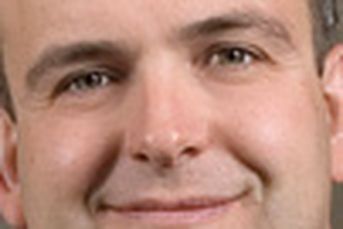TD Ameritrade keeps lid on RIA metrics
TD Ameritrade Holding Corp. reported a better-than-expected fiscal-third-quarter profit last week, but company executives had little to say about the firm's business for servicing independent registered investment advisers.
TD Ameritrade Holding Corp. reported a better-than-expected fiscal-third-quarter profit last week, but company executives had little to say about the firm’s business for servicing independent registered investment advisers.
“We don’t see a need to do that,” said Fred Tomczyk, chief executive of the Omaha, Neb.-based financial company when asked to break out the portion of its net new assets of $6.9 billion in the three-month period ended June 30 that came from RIAs or how much of its $171 million of quarterly net income was generated by its institutional business for RIAs.
Michael Hecht, a securities analyst at JMP Securities LLC in New York, said TD Ameritrade has made “serious strides” in building its custodial business for advisers, but suspects that total and new-client assets from RIAs likely slid in the last few quarters. “That’s probably why they’re de-emphasizing it,” said Mr. Hecht, who noted that he hasn’t had much luck with requests to the firm to break out quarterly metrics on its RIA channel.
Both TD Ameritrade’s retail and RIA businesses are gathering assets “at a good clip,” Mr. Tomczyk said in a conference call with analysts, but in a later interview, he said he has no plans in the near or long term to disclose more precise channel metrics.
“We provide very full disclosure and transparency,” he said, noting that finer distinctions wouldn’t be worth the additional costs and accounting implications.
TD Ameritrade’s net income fell 17% in the third quarter to $170.5 million, or 30 cents a share, from $204.4 million, or 34 cents a share, a year earlier, on lower interest-related revenue. The company has been waiving money market fund fees to keep investors from realizing negative returns and, in general, had lower revenue from mutual fund and exchange traded fund sales, two popular vehicles used by RIAs.
Excluding one-time costs such as a special bank regulatory fee and a charge related to its purchase during the quarter of options firm thinkorswim Group Inc. of Chicago, TD Ameritrade would have earned 33 cents a share. That bested the 29-cent-a-share average estimate of analysts polled by Thomson Reuters of New York.
The Charles Schwab Corp. of San Francisco, TD Ameritrade’s much-larger competitor, two weeks ago said net new assets from RIAs slid 47% in its second quarter as it reported a 31% drop in overall net income to $423 million. Schwab is the only one of the four largest RIA custodians to break out many RIA metrics and is viewed by many analysts and consultants as a proxy for the custody industry.
Schwab’s dominance — its market share as measured by RIA assets is about twice that of runner-up Fidelity Investments of Boston — may intimidate competitors from more complete disclosure. Schwab collected $17 billion of net new assets throughout the company last quarter, including $7.7 billion from advisers — compared with the $6.9 billion of new assets booked throughout TD Ameritrade.
For both Schwab and TD Ameritrade, the “juice” last quarter came from retail investors flocking to the discount brokers’ online and call center platforms from large, full-service brokerage firms, Mr. Hecht said. The wave of new assets that the firms are expecting from brokers who leave big brokerage firms to become independent advisers has been temporarily waylaid as wirehouses hold on to their best brokers by dangling big payout incentives, he said.
Mr. Tomczyk agrees. “The close rate [on breakaway brokers] has been actually quite slow. They are all pausing and considering whether now is the time to go independent.”
But for the first time in more than a year, Mr. Tomczyk said, he is optimistic that brokers may begin defecting meaningfully in the next three to nine months.
TD Ameritrade’s just-ended quarter was marked by one unusually high source of revenue — interest from lending securities to clients who short stocks. (TD is the leading discount broker for active traders.) Securities-lending revenue soared to $42.9 million last quarter, up from an average of $16.4 million in the previous two quarters. About 70% of the increase, which added about 3 cents a share to the company’s earnings, came from lending out one hard-to-find stock that TD lent at wide spreads, said William Gerber, the company’s chief financial officer.
He and Mr. Tomczyk declined to name the stock, but analysts said it was Citigroup Inc. The banking giant’s shares were in great demand in recent weeks by traders with negative views. The “squeeze” on Citigroup’s stock appeared to end last week when shares related to its conversion of preferred to common shares began trading on a “when-issued” basis, traders said.
A spokesman at New York-based Citigroup de-clined to comment.
E-mail Jed Horowitz at [email protected].
Learn more about reprints and licensing for this article.




